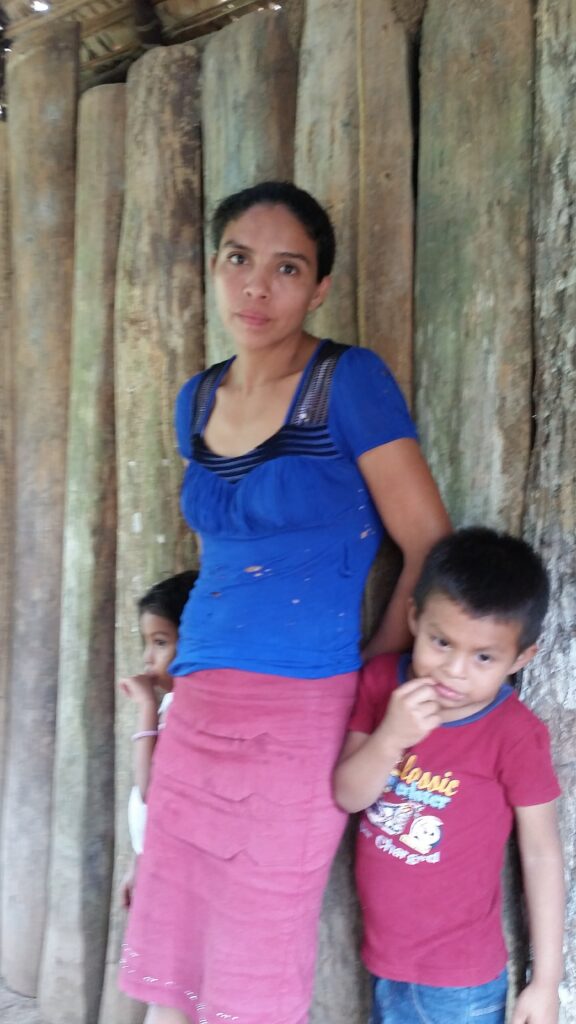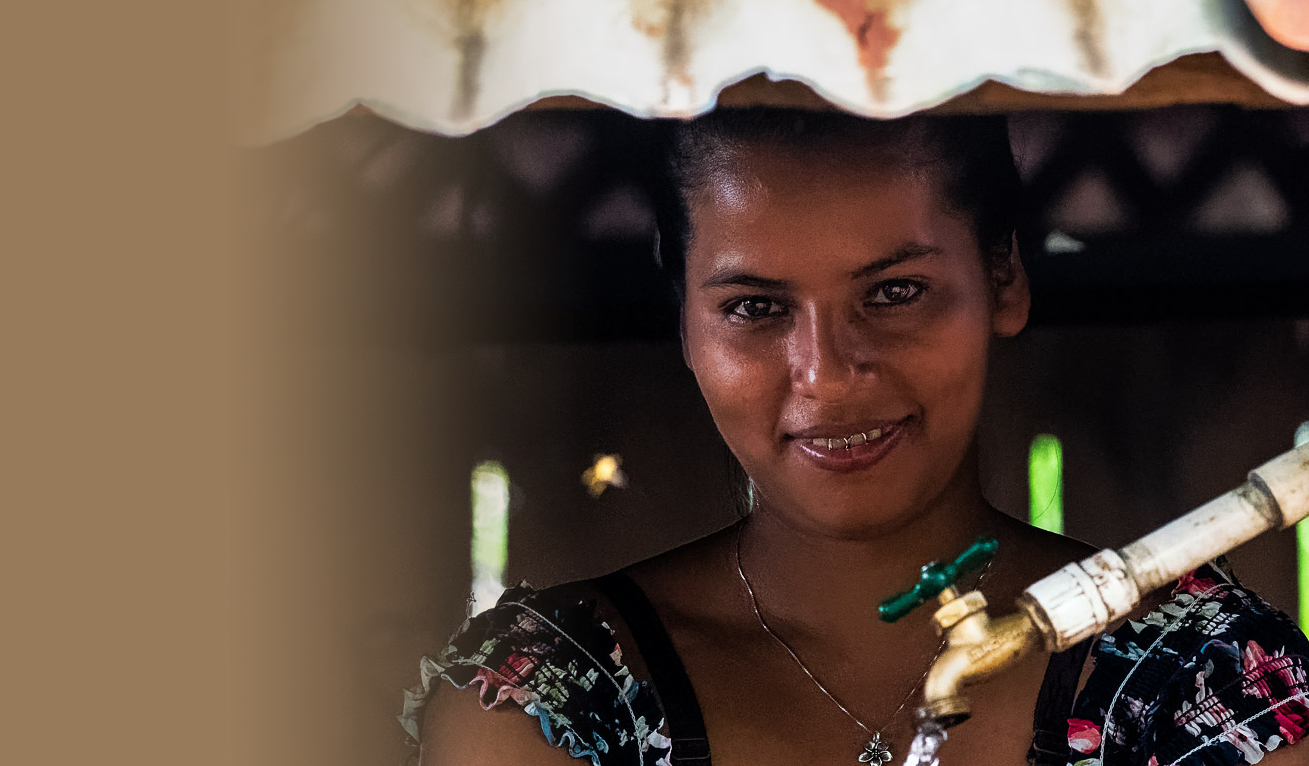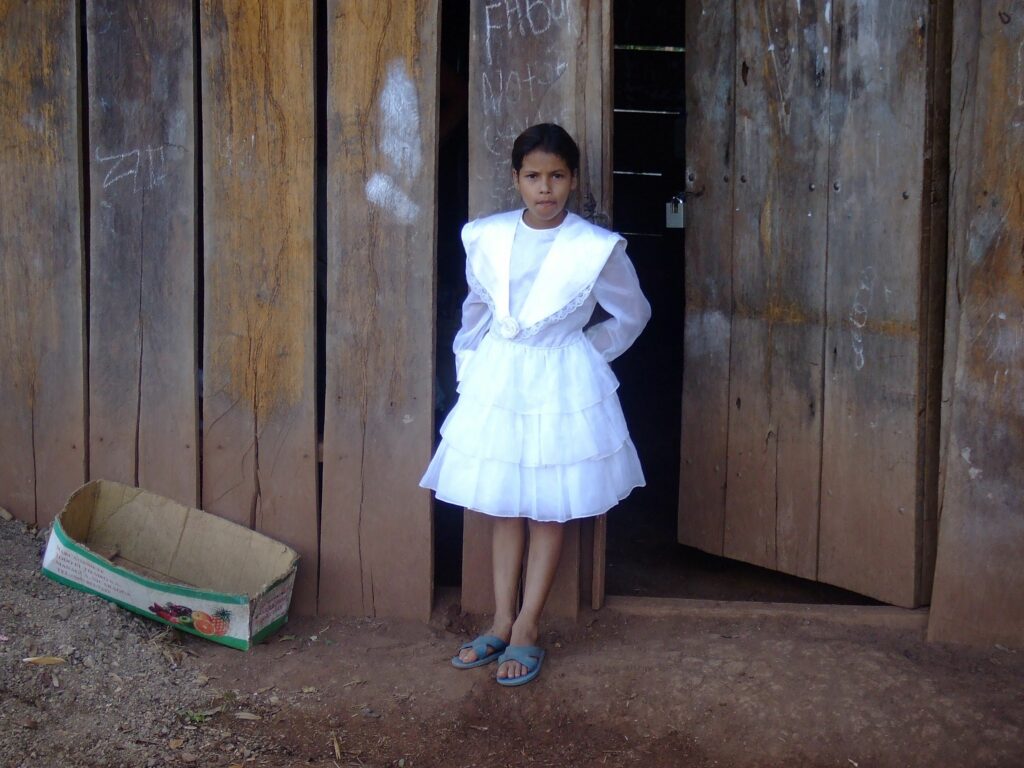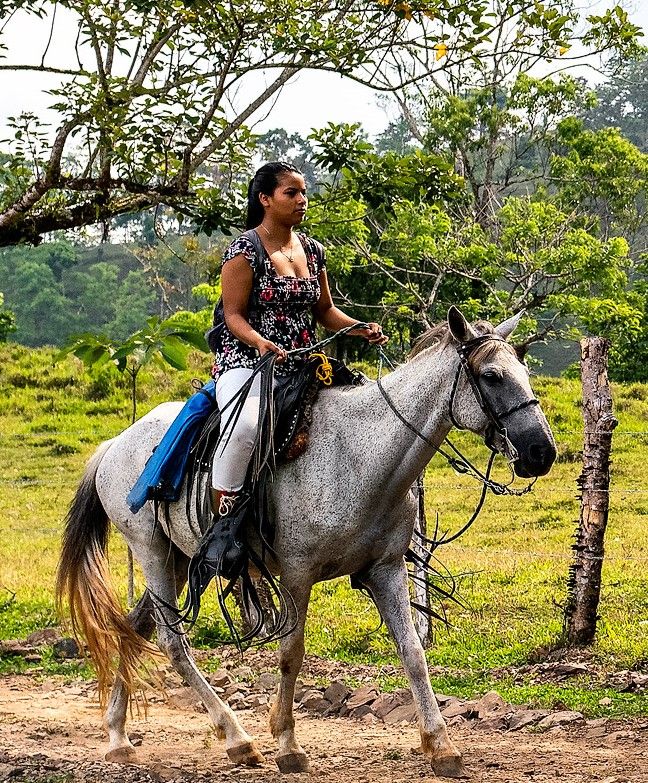
No matter which continent you live on, you try to do your best with what you have. In rural Nicaragua, many parents don’t have much extra. In fact, most don’t even have the basics.
Instead of having the convenience of a tap in or near their home, families in rural Nicaragua walk to a nearby stream multiple times a day to gather water. Most families will spend nearly 2 hours per day just gathering water. They get up before the sun in order to fetch the water that will be used to prepare breakfast. The walk is often a half mile or more, and the return journey feels longer when carrying full jugs of water.
They have to work hard to gather water, and that water isn’t clean. You can often see sediment or insects floating around. However, it is the only option. Without water, they would die from dehydration. But the diseases caused by drinking unclean water can be just as deadly.
Meet Berlina. She has 3 children, and her only source of water was a stream shared by the entire community as well as the livestock and forest wildlife. Because the water they had access to was contaminated, her family faced serious health issues.
Berlina recounts, “My little girl almost died. I was told it was because we drank polluted water. My youngest daughter almost died when she was three months old. She had ongoing diarrhea, fever, and vomiting.” For parents who already have limited resources, a medical emergency like this can be terrifying.
Unsafe water creates other economic issues as well. When children get sick, they miss school and their parents have to stay home from work. In communities where most people are subsistence farmers, time away from work can also translate to food scarcity.
The factors of environmental dangers, increased disease, time away from school and work, and food scarcity put these vulnerable communities at even more risk. One solution can minimize all of them: clean water in their home.
In Berlina’s community of Rio Lindo, Project Schoolhouse collaborated with residents to build a spring-fed gravity-flow water system. The families trenched all 7 kilometers (about 4 miles) by hand and laid the distribution pipes themselves. The community’s involvement translates to a sense of ownership. The skills and knowledge that they gained during the project means that they won’t have to rely on outside organizations or the local government to maintain the water system. They can rely on themselves, which is a point of pride.
These days, instead of spending hours walking along a risky path to find a basic necessity, Berlina and her neighbors can access clean water by simply turning a spigot. Each family that chooses to participate in the project gets a water tap installed at their home. Having easy access to clean water has made a world of difference. They don’t get sick as often, and the children’s education doesn’t get interrupted as much. Berlina and her community feel much more hopeful for the future.
Written by Heather Heiss


